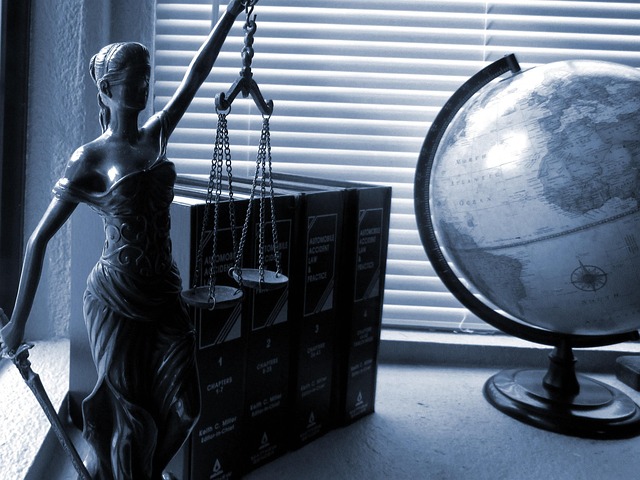Jury selection is a critical stage in litigation that significantly influences trial outcomes, with a focus on impartiality and suitability of potential jurors. In white-collar or criminal defense cases, understanding jury dynamics through voir dire questioning is vital to ensure fair trials. Effective jury selection involves scrutinizing backgrounds and views to create a balanced panel, crucial for just verdicts, especially in complex cases. Technology, like data analytics, streamlines this process, enhancing diversity and transparency, ultimately benefiting plaintiffs and defendants by contributing to better legal outcomes.
Litigation Support Services play a pivotal role in ensuring fair and just trials. This article delves into the critical process of jury selection, exploring its profound impact on trial outcomes. We analyze how jury bias and preconceptions can influence decisions, and present effective strategies to promote fairness and diversity. Additionally, we examine the modernizing role of technology in jury selection, supported by compelling case studies that demonstrate the significance of this crucial step. Understanding how jury selection impacts trial outcomes is essential for legal professionals aiming to achieve successful resolutions.
- Understanding Jury Selection: A Crucial Step in Litigation
- The Impact of Jury Bias and Preconceptions on Trial Outcomes
- Effective Strategies for Enhancing Jury Fairness and Diversity
- Technology's Role in Modernizing Jury Selection Processes
- Case Studies: When Jury Selection Makes or Breaks a Trial
Understanding Jury Selection: A Crucial Step in Litigation

Jury selection is a critical phase in any litigation case, as it significantly influences the trial’s outcome. This process involves carefully vetting potential jurors to ensure their impartiality and suitability for the specific legal matter at hand. The goal is to seat an unbiased panel that can objectively evaluate the evidence presented during the trial. A well-conducted jury selection can lead to a more engaged and attentive jury, ultimately affecting the verdict.
In white-collar defense or general criminal defense cases, understanding how jury trials work and the role of jurors is essential. Attorneys must be adept at asking the right questions during voir dire—the preliminary examination of potential jurors. This allows them to unearth biases, pre-conceptions, or experiences that might cloud a juror’s judgment. By strategically challenging or excusing certain jurors, defense teams can shape a jury that aligns with their client’s best interests, ensuring a fair and just trial.
The Impact of Jury Bias and Preconceptions on Trial Outcomes

The jury, as the adjudicators of trial outcomes, play a pivotal role in the legal process. However, their decision-making isn’t always based on pure objectivity. Jury bias and preconceptions, whether conscious or unconscious, can significantly influence the outcome of trials. This is particularly concerning in cases involving complex matters like white-collar defense, where nuances and subtleties are crucial for a just verdict.
The impact of these biases during jury selection cannot be overstated. Careful consideration of each potential juror’s background, experiences, and views ensures a more balanced and fair trial. An unprecedented track record of successful cases for his clients often relies on this meticulous process, highlighting the importance of addressing and mitigating any preconceived notions that could sway the jury’s perception.
Effective Strategies for Enhancing Jury Fairness and Diversity

Ensuring jury fairness and diversity is a multifaceted process that significantly influences trial outcomes, particularly in high-stakes cases like white collar and economic crimes. The impact of an inclusive jury panel cannot be overstated; it not only ensures equal protection under the law but also enhances the credibility of the justice system. One effective strategy to achieve this is implementing robust juror selection processes that go beyond traditional demographics. This involves delving into a pool of potential jurors, considering their life experiences and cultural backgrounds to foster a balanced panel.
By utilizing modern tools and techniques, such as data analytics for bias detection and thorough questionnaires, legal professionals can identify and mitigate potential biases. Additionally, diverse jury pools lead to more robust discussions and deliberation, resulting in fairer and more informed verdicts. This is especially crucial in winning challenging defense verdicts, where a well-representative jury can make all the difference, ensuring that justice is not only served but also perceived as such across the country.
Technology's Role in Modernizing Jury Selection Processes

In today’s digital era, technology is revolutionizing every aspect of legal practice, and jury selection is no exception. Traditional methods have been replaced by innovative tools that enhance efficiency and accuracy. One notable example is the use of advanced data analytics to analyze potential jurors’ backgrounds, social media presence, and public records. This enables attorneys to make more informed decisions, ensuring a diverse and impartial jury pool. By leveraging these technologies, law firms can achieve an unprecedented track record in selecting jurors who best represent their clients’ interests, ultimately impacting trial outcomes significantly.
Furthermore, digital platforms streamline the process by providing efficient means of communication between attorneys, potential jurors, and the court. This modern approach not only saves time but also improves accessibility, especially for white-collar defense cases where subtleties in juror selection can make a substantial difference. With these technological advancements, the entire jury selection process becomes more transparent and effective, contributing to better results for both plaintiffs and defendants alike.
Case Studies: When Jury Selection Makes or Breaks a Trial

Jury selection is a critical phase in any trial that can significantly influence the outcome. It’s not just about picking a group of individuals to decide a case; it’s a strategic process that shapes the entire legal battle. In many instances, successful jury selection has led to winning challenging defense verdicts for even the most complex cases, showcasing an unprecedented track record. This is because the chosen jurors become the eyes and ears of the court, interpreting evidence and testimonies through their unique perspectives.
When conducted effectively, jury selection can ensure a fair and impartial panel that understands the complexities of the case. This understanding allows jurors to ask probing questions during witness examinations, uncovering nuances that might sway public perception. Conversely, inadequate or biased jury selection can result in a jury that doesn’t appreciate the subtleties, leading to misunderstandings and potentially damaging outcomes for both parties. Thus, it’s crucial for legal professionals to approach jury selection as a case study in itself, leveraging their knowledge and experience to select jurors who will fairly represent the respective business at hand.
Jury selection is a critical process that significantly influences the outcome of litigation. By understanding potential biases, employing diverse strategies, and leveraging technology, legal professionals can ensure fairer trials. The case studies presented highlight the profound impact effective jury selection can have on successful litigation outcomes. Navigating this process with care and innovation is essential to achieving justice in today’s legal landscape.






